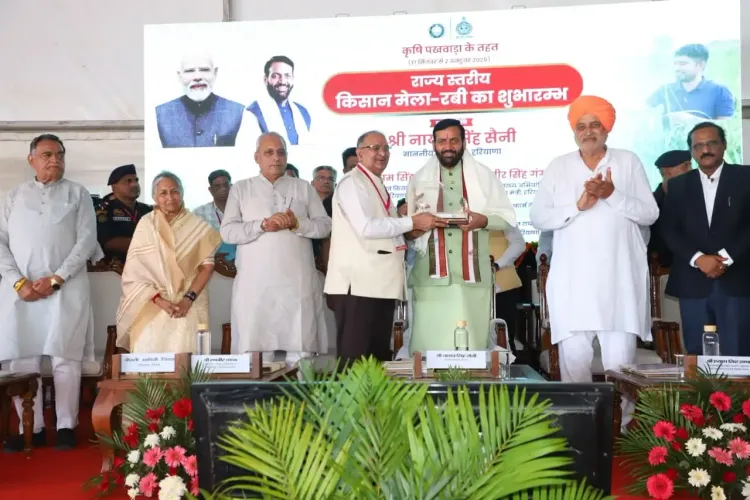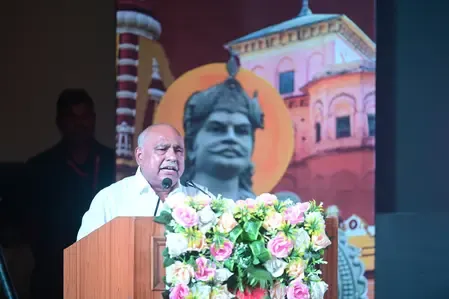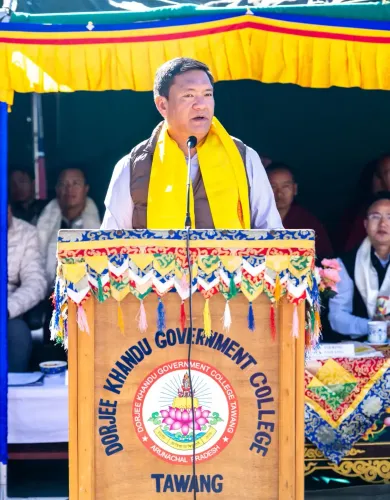Why Should Farmers in Haryana Embrace Agricultural Diversification?

Synopsis
Key Takeaways
- Agricultural diversification can significantly boost farmers' income.
- Prioritizing coarse grains is essential for sustainability.
- Innovative practices like medicinal plant cultivation and beekeeping offer new income opportunities.
- The government's 'Har Ghar Chhaon' scheme supports sapling distribution.
- Dialogue at agricultural fairs fosters knowledge exchange.
Chandigarh, Sep 21 (NationPress) Haryana Chief Minister Nayab Singh Saini urged farmers to embrace agricultural diversification and prioritize the cultivation of coarse grains.
He emphasized that the government remains steadfast in its support for farmers, consistently implementing tangible measures to enhance both the profitability and sustainability of agriculture.
Encouraging the adoption of innovative practices, the Chief Minister highlighted that activities such as medicinal plant cultivation, beekeeping, mushroom production, as well as vegetable, flower, and fruit farming can significantly boost farmers' incomes. He assured that the government will continue to offer extensive facilities, incentives, and support to farmers pursuing these avenues.
While addressing a large assembly after inaugurating the Rabi Agriculture Fair organized by Chaudhary Charan Singh Haryana Agricultural University (CCSHAU) in Hisar, the Chief Minister also inaugurated the 'Har Ghar Chhaon -- Har Ghar Phal' scheme, which aims to distribute 55,000 fruit saplings free of charge across 110 villages in 22 districts. Farmers received saplings during the event.
Additionally, he presented dummy cheques ranging from Rs 40,000 to 50 cattle rearers under the Conservation and Development of Indigenous Cows and Murrah Development Scheme, and provided dairy establishment approval letters to 75 women entrepreneurs.
The Chief Minister also inaugurated the Dattopant Thengadi Agricultural Entrepreneurship Centre and the Kalpana Chawla Women’s Hostel along with Devi Ahilya Bai Holkar Women’s Hostel on the university campus.
He acknowledged the significant contributions of CCSHAU, describing it as a national pride where scientists are diligently working on agricultural research and addressing farmers' challenges.
He stressed that agricultural fairs play a crucial role in facilitating dialogue between scientists and farmers, imparting essential knowledge on new technologies, crop diversification, and natural resource management. This knowledge, he asserted, will aid farmers in reducing expenses and enhancing production. He called for a harmonious relationship between agriculture and nature, emphasizing the need for collaborative efforts among the government, scientists, and farmers.









